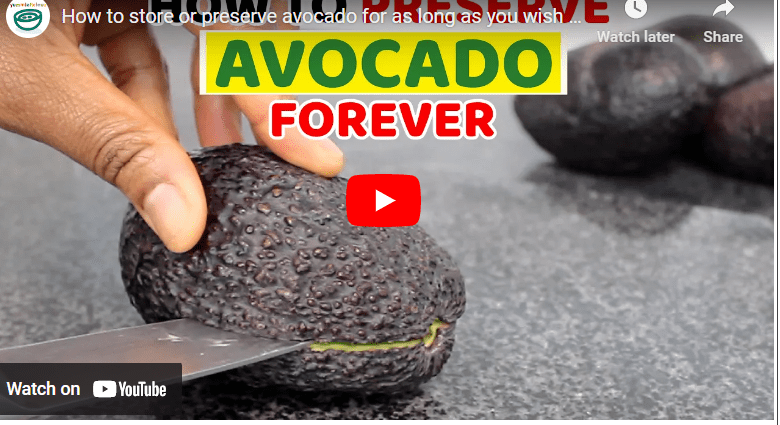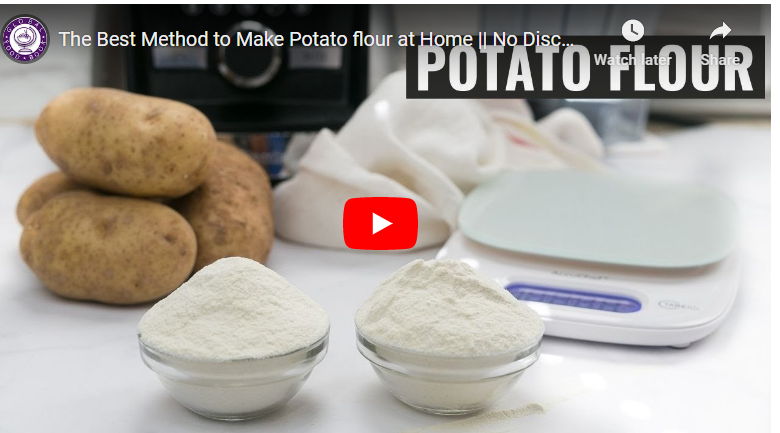Pepper plants are a popular addition to any vegetable garden or container. They come in a variety of types, from sweet bell peppers to spicy chili peppers.
To ensure a bountiful harvest of healthy peppers, it is important to use the right fertilizer. There are many options available, both organic and inorganic, each with its own unique benefits.
From slow-release granular fertilizers to water-soluble options, the best fertilizer for your pepper plants will depend on your specific needs and growing conditions.
In this article, we have compiled a list of the top 12 fertilizers for peppers, along with tips on how to choose the right one for your garden.
12 Best Fertilizer For Pepper
The use of fertilizer has improved crop farming over the years. There have been different fertilizers designed for specific crops and we have identified 12 best fertilizer for pepper.
Read Also: 12 Best Fertilizer for Palm Tree: Best To Boost Your Palm Oil Production
#1. Miracle-Gro Water Soluble All Purpose Plant Food
Category: Inorganic Fertilizer
This is an inorganic fertilizer that contains a balanced blend of essential nutrients, including nitrogen, phosphorus, and potassium, that pepper plants need for healthy growth.
The water-soluble formula makes it easy to apply, and the quick-release formula ensures that the nutrients are readily available to the plants.
Miracle-Gro also contains micronutrients that help to improve overall plant health, making it a great choice for pepper plants.
Read Also: 12 Best Fertilizer For Cucumbers [Organic & Inorganic]
#2. Fox Farm FX14049 Liquid Nutrient Trio Soil Formula
Category: Organic Fertilizer
This is an organic fertilizer that consists of a trio of liquid nutrients – Grow Big, Big Bloom, and Tiger Bloom – that work together to provide pepper plants with everything they need for healthy growth.
The formula is designed to be used throughout the entire growth cycle and contains a mix of macronutrients and micronutrients that help to improve plant health and yield.
The organic formula also promotes beneficial microbial activity in the soil, which can lead to healthier plants and better yields.
Read Also: 12 Best Fertilizers For Cassava In Africa
#3. Espoma Tomato-tone Plant Food
Category: Organic Fertilizer
This organic fertilizer is specifically designed for tomato plants, but it is also an excellent choice for peppers.
It contains a balanced blend of nutrients, including calcium, magnesium, and potassium, that help promote strong root development and fruit growth.
The organic ingredients in this fertilizer, such as bone meal and poultry manure, also provide slow-release nutrients to your pepper plants, ensuring they receive the nutrition they need over an extended period.
#4. Jobe’s Organics Vegetable & Tomato Fertilizer
Category: Organic Fertilizer
This organic fertilizer is formulated with Jobe’s Biozome technology, which contains a blend of beneficial microorganisms that help break down organic matter in the soil and make nutrients more available to your pepper plants.
It also contains a balanced blend of nutrients, including nitrogen, phosphorus, and potassium, that are essential for healthy plant growth and fruit production.
This fertilizer is also OMRI listed, meaning it is approved for use in organic gardening.
#5. Dr. Earth Organic 5 Tomato, Vegetable & Herb Fertilizer
Category: Organic Fertilizer
This organic fertilizer is specifically formulated for tomato, vegetable, and herb plants, making it a great choice for pepper plants.
It is made with a blend of natural ingredients, such as bone meal, kelp meal, and alfalfa meal that provide essential nutrients for healthy growth and development.
This fertilizer is also enriched with beneficial microbes and mycorrhizae, which help to improve soil health and plant resilience.
#6. Neptune’s Harvest Organic Hydrolyzed Fish & Seaweed Fertilizer
Category: Organic Fertilizer
This liquid fertilizer is made from a blend of fish and seaweed and is a great organic option for pepper plants.
It is high in nitrogen, phosphorus, and potassium, as well as micronutrients like calcium, iron, and magnesium, which are essential for healthy plant growth.
The fish and seaweed in this fertilizer also contain beneficial enzymes and amino acids that help to improve soil structure and promote strong root development.
#7. Osmocote Smart-Release Plant Food Plus Outdoor & Indoor
Category: Inorganic Fertilizer
This fertilizer is designed for both outdoor and indoor plants, including pepper plants. It releases essential nutrients over a period of six months, providing your pepper plants with a continuous supply of food.
It also contains a high level of phosphorus, which is beneficial for promoting root growth and healthy blooms.
#8. J R Peters Jacks Classic No.4 20-20-20 All Purpose Fertilizer
Category: Inorganic Fertilizer
This fertilizer is an all-purpose fertilizer that can be used on a variety of plants, including pepper plants.
It contains a balanced blend of essential nutrients, including nitrogen, phosphorus, and potassium, which are crucial for plant growth and development.
It also contains a micronutrient package that helps to promote healthy growth and strong roots.
#9. Garden-tone Organic Plant Food
Category: Organic Fertilizer
This is an organic fertilizer that is specifically designed to provide essential nutrients for vegetables and fruits, including peppers.
It contains a blend of natural ingredients such as poultry manure, bone meal, and composted cow manure, which slowly release nutrients to your pepper plants.
Garden-tone also contains beneficial microbes that help to improve soil health and promote root development, leading to healthier and more productive pepper plants.
#10. Burpee Organic Tomato and Vegetable Granular Plant Food
Category: Organic Fertilizer
This organic fertilizer is specifically formulated to provide essential nutrients for vegetables and fruits, including peppers.
It contains a blend of natural ingredients such as bone meal, poultry manure, and composted seabird guano, which slowly release nutrients to your pepper plants.
Burpee Organic Tomato and Vegetable Granular Plant Food also contains beneficial microbes that help to improve soil health and promote root development, leading to healthier and more productive pepper plants.
#11. Black Magic 10101-10054 Bloom Booster Fertilizer
Category: Inorganic Fertilizer
This high-phosphorus fertilizer is designed to boost flower and fruit production in plants like peppers. The 0-14-15 NPK ratio promotes healthy root development and enhances plant strength.
It also contains trace elements like iron and magnesium, which are essential for plant growth and vitality.
#12. Southern Ag PowerPak 20-20-20 Water Soluble Fertilizer
Category: Inorganic Fertilizer
This balanced NPK fertilizer is ideal for promoting strong vegetative growth in pepper plants.
The 20-20-20 ratio provides equal amounts of nitrogen, phosphorus, and potassium, which are essential for plant growth and development.
It also contains micronutrients like iron and manganese, which help to prevent nutrient deficiencies and promote healthy foliage.
This water-soluble fertilizer is easy to use and provides quick results, making it an excellent choice for gardeners looking to give their pepper plants a quick boost.
Benefits of Applying Fertilizer to Pepper
- Increased Yield: Fertilizers provide plants with the necessary nutrients to produce more fruit, resulting in increased yield.
- Improved Growth: Fertilizers help pepper plants to grow more robustly, with stronger stems, greener foliage, and healthier roots.
- Enhanced Flavor: A well-fed pepper plant produces more flavorful fruits with a better texture.
- Disease Resistance: Fertilizers strengthen pepper plants, making them more resistant to diseases and pests.
Disadvantages of Applying Fertilizer to Pepper
- Overfertilization: Overuse of fertilizers can lead to excess salt buildup in the soil, which can harm pepper plants and result in stunted growth.
- Chemical Buildup: Synthetic fertilizers can leave behind harmful chemical residues in the soil, which can harm the environment and contaminate water sources.
- Environmental Damage: Overuse of fertilizers can harm the environment by polluting waterways, damaging soil quality, and contributing to climate change.
How to Apply Organic fertilizer to Pepper
- Choose the Right Fertilizer: Organic fertilizers come in many forms, including compost, manure, and seaweed. Select a fertilizer that is formulated for peppers and follow the manufacturer’s instructions.
- Apply Fertilizer at the Right Time: Organic fertilizers should be applied in early spring, just as the pepper plants begin to grow.
- Use the Right Amount: Overuse of organic fertilizers can be harmful to pepper plants. Follow the instructions on the label and apply the recommended amount of fertilizer.
- Mix Fertilizer into the Soil: Work the organic fertilizer into the soil around the base of the pepper plants, making sure to spread it evenly.
- Water the Plants: After applying the fertilizer, water the pepper plants thoroughly to help the nutrients reach the roots.
How to Apply Inorganic fertilizer to Pepper
When applying inorganic fertilizers to your pepper plants, it is essential to follow the instructions on the package.
Generally, you will want to sprinkle the fertilizer evenly around the base of your pepper plants and then water them thoroughly.
It’s important to avoid getting the fertilizer on the leaves of your plants, as this can cause damage.
Make sure to wear gloves and wash your hands thoroughly after applying inorganic fertilizer.
Factors to Consider when Choosing Fertilizer for Pepper
When choosing a fertilizer for your pepper plants, consider the plant’s growth stage, nutrient requirements, and soil composition.
Look for a fertilizer that contains nitrogen, phosphorus, and potassium, as these are the primary macronutrients that peppers need.
You may also want to consider adding micronutrients like calcium, magnesium, and iron to your fertilizer mix.
It is important that you consider the type of fertilizer you want to use, whether organic or inorganic.
When to Apply Fertilizer to Pepper
Pepper plants benefit from fertilization throughout their growth cycle. Start by fertilizing your peppers with a balanced fertilizer when you plant them.
Then, continue to fertilize every four to six weeks throughout the growing season.
It’s best to fertilize peppers in the morning or evening when the temperatures are cooler, as this reduces the risk of fertilizer burn.
Where to Buy Organic Fertilizer
Organic fertilizers are readily available at most gardening supply stores, nurseries, and online retailers.
You may also be able to find organic fertilizer at your local home improvement store or hardware store.
Look for a fertilizer that is labeled as organic and contains natural ingredients like compost, manure, or bone meal.
Also, consider purchasing organic fertilizer from a reputable brand to ensure that the product is of high quality.
What Is The Best Fertilizer For Pepper Plants
The best fertilizer for pepper plants is one that provides a balanced mix of essential nutrients for optimal growth and yield.
While there are many options available, a slow-release, granular fertilizer with a balanced N-P-K ratio such as 10-10-10 or 5-10-10 is a good choice.
It is also important to consider the specific needs of your pepper plants, such as the pH level of the soil and any micronutrient deficiencies that may be present.
Pepper Fertilizer Ratio
The ideal pepper fertilizer ratio will depend on the specific needs of your pepper plants and the soil in which they are growing.
However, a balanced N-P-K ratio of 5-10-10 or 10-10-10 is generally recommended.
It is also important to ensure that the fertilizer you choose provides sufficient amounts of micronutrients such as calcium, magnesium, and sulfur.
Best Fertilizer For Peppers In Pots
When it comes to fertilizing peppers in pots, a slow-release, balanced fertilizer with a ratio of 5-10-10 or 10-10-10 is a good choice.
Also, it is important to ensure that the soil in your pots has good drainage and is kept moist but not waterlogged. Consider using a liquid fertilizer during the growing season to supplement your plant’s nutrient intake.
5 10 10 Fertilizer For Peppers
5-10-10 fertilizer can be a good choice for pepper plants, as it provides a balanced mix of nutrients that can help promote healthy growth and high yields.
This ratio is particularly useful for plants that are heavy feeders and require more phosphorus and potassium to support their development.
Fertilizing Peppers For Maximum Yield
To fertilize peppers for maximum yield, it is important to provide them with a balanced mix of essential nutrients throughout the growing season.
This can be achieved by using a slow-release, granular fertilizer with a balanced N-P-K ratio such as 5-10-10 or 10-10-10.
It is also important to monitor the pH level of the soil and adjust as necessary to ensure that your plants are able to absorb the nutrients they need.
Homemade Fertilizer For Pepper Plants
Homemade fertilizer for pepper plants can be a cost-effective and environmentally friendly way to provide your plants with essential nutrients.
Common ingredients for homemade fertilizer include compost, worm castings, bone meal, and fish emulsion.
Be sure to mix these ingredients in appropriate ratios and follow safe handling procedures to avoid burning your plants.
Best Organic Fertilizer for Peppers
The best organic fertilizer for peppers will depend on your specific needs and preferences. Options include compost, worm castings, and organic fish emulsion.
It is important to ensure that your chosen fertilizer is free from harmful chemicals and is certified for use in organic gardening.
Conclusion
Choosing the right fertilizer for your pepper plants can make a significant difference in their growth and yield. Whether you prefer organic or inorganic options, there are plenty of choices available to meet your gardening needs. By considering factors such as the plant’s growth stage and nutrient requirements, you can find the best fertilizer for your pepper plants.



